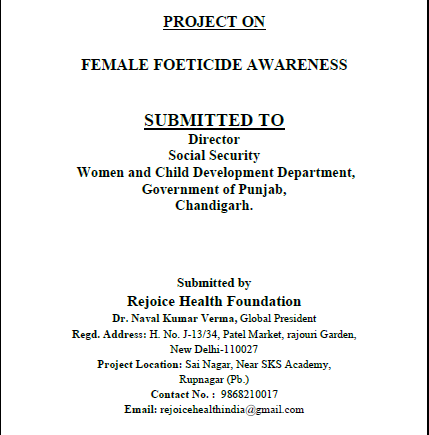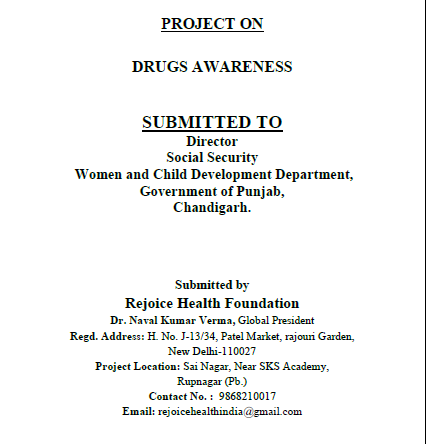SUBMITTED TO
Director Social Security
Women and Child Development Department,
Government of Punjab, Chandigarh.
About- Female foeticide is the act of aborting a foetus because it is female. This is a major social
problem in India and has cultural connections with the dowry system that is ingrained in Indian
culture, despite the fact that it has been prohibited by law since 1961. See Dowry law in India. In
India a strong preference for sons over daughters exists, unlike in Western cultures. People
realise smaller family sizes with relatively greater number of sons through the use of medical
technologies. Pregnancies are planned by resorting to 'differential contraception' —
contraception is used based on the number of surviving sons irrespective of family size.
Following conception, foetal sex is determined by prenatal diagnostic techniques after which
female foetuses are aborted. Foetal sex determination and sex-selective abortion by medical
professionals has grown into a 1,000 crore industry (US$244 million). Social discrimination
against women and a preference for sons have been promoted. Since 1991, 80% of districts in
India have recorded an increasingly masculine sex ratio with the state of Punjab having the most
masculine sex ratio. According to the decennial Indian census, the sex ratio in the 0-6 age group
in India went from 104.0 males per 100 females in 1981, to 105.8 in 1991, to 107.8 in 2001, to
109.4 in 2011. The ratio is significantly higher in certain states such as Punjab and Haryana
(126.1 and 122.0, as of 2001).


